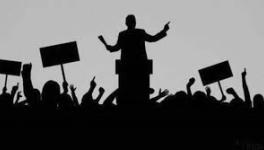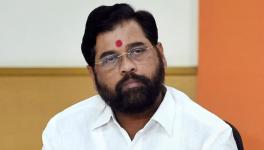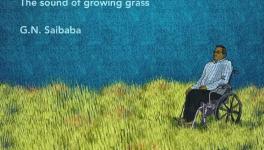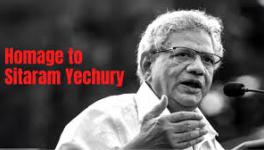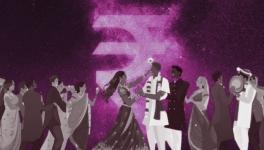Western Liberal Democracy: Mise en Scène Like Nobody Cares
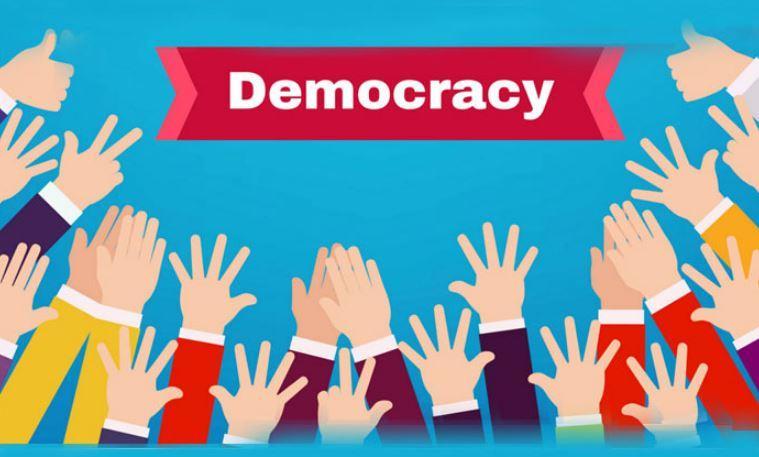
The ‘Summit for Democracy’ organised by the United States on 9 and 10 December appears to have been well-intentioned. Rather than presenting the United States as the paragon of democracy, the first sentence in the official website mentions “renewing” democracy in the United States as one of its goals. Thereby, it admits all is not well in the country that claims to be the oldest democracy. Something like this summit was a campaign promise of President Joe Biden. At that time, many in the United States sincerely believed that the Donald Trump administration had seriously compromised the democratic institutions of their country. However, given that the summit was international, besides its timing and invitees—and those kept out—it is clear the United States administration plans to use it as an ideological offensive in the new Cold War against Russia and China.
If another stated goal of the summit is to “listen, learn, and engage with a diverse range of actors whose support and commitment is critical for global democratic renewal”, it made sense to hear out all governments that claim to be democratic. Of course, the governments of nearly all countries profess to represent the will of their people. Besides, a United Nations convention would have been more appropriate to figure out how to renew democracy globally. Such a convention gives every country an equal right to present its case on an issue, but that is not what the United States administration wanted. It arrogated the right to decide who can or cannot contribute to the supposed “renewal of democracy”.
The list of invitees makes it obvious that only countries that can potentially play a role in the geo-strategic plans of the Pentagon and NATO were invited. China, whom the US national security strategic guidance of 2021 identifies as the only “competitor” with the capacity to “mount a sustained challenge” to the current international system, and Russia, which, the same document claims, is playing a “disruptive role on the world stage”, were left out. So were Cuba and Venezuela, whose governments have been targets of United States regime-change efforts. Central Asian Republics aligned with Russia are out, too. But ex-Soviet republics on the western border of Russia, many of which have had so-called colour revolutions, and await induction into NATO, are in.
Responding to this Cold War manoeuvre, the ambassadors of Russia and China in the United States took the unprecedented step of issuing a joint article against the summit. They see it as “stoking ideological confrontation”, which runs counter to an “objective process” of a “polycentric global architecture”. Their observations on hegemony, unilateralism, and the use of “ideology to bring down other countries” will be accepted by most democratic people the world over. Yet their claims about the multiple realisations of democracy and assertion that “whether a country’s path [towards democracy] works depends on whether it meets the country’s realities, follows the trend of times”, etc. obfuscates critical issues related to democracy. Many Marxists and socialists will also not agree with the characterisation of the system of governance in China as an “extensive whole-process socialist democracy”.
Arguments similar to the ambassadors’ can also be presented by authoritarian regimes masquerading as democratic. Indian Foreign Minister S. Jaishankar claims democracy has been a “way of life” in India since times ancient. This assertion counters the architect of the Indian Constitution BR Ambedkar, who had said, “Democracy in India is only a top dressing over an Indian soil which is essentially undemocratic.” The two ambassadors and India’s Foreign Minister make the elementary mistake of emphasising specifics, while the first requirement of a discussion on democracy is to clarify the general principles. Nobody will deny that state institutions of governance in every country, democratic or authoritarian, will carry the stamp of local context and history. However, if the category of demos (meaning people) is universal, then democracy, or the rule of the people, too, would have certain universal principles. Further, the Chinese and Russian ambassadors say little about the specifically liberal form of governance that the United States administration and western imperialism present as the only and definitive form of democracy, and use as an ideological weapon in the new Cold War.
Democracy and Inequality: Liberal Dance-Around on Key Contradiction
A core contradiction besets any notion of democracy in societies embedded with inequalities. Democracy is a form of state power that supposedly grants equal rights and duties to every citizen. A state exists in society rather than over and above it. If a society has structural inequalities of economic relations, caste, race, gender etc., it is fallacious to assume that these inequities would not affect the practices of the state, thereby vitiating the first democratic principle—equality. This, precisely, was Ambedkar’s warning to the Constituent Assembly.
A prevalent response of the advocates of democracy to this contradiction is to behave as if it does not exist. The famed democracy of ancient Greece existed in a slave society, in which the majority of people, including the slaves working on households, farms, and mines, and all women, were excluded from democratic deliberations. The authors of the American Declaration of Independence wrote it as if there was no slavery in the United States, though it did, and right under their nose. Against such “democratic” traditions, the revolutionary democratic currents have always demanded the abolition of the sources of social inequality as a precondition for meaningful democracy.
Hence, the French revolutionaries abolished all political and economic privileges of the aristocracy and the Church. In a similar vein, the Marxists and socialists demand abolition of the private system of production under capitalism and its replacement by a socialised system.
The two defining features of the liberal model of governance are the principle of representation via elections, and the rights of citizens to freedom of expression, association, and getting elected to public office. The right to representation is typically restricted to those parts of the state which are most removed from direct exercise of state authority over people, namely the legislative branch and the head of the executive. This should be contrasted with the direct, i.e., non-representative democracy of Greek city-states, where every governance issue, including appointments of commanders to military expeditions, was decided in open public meetings in which every citizen could participate.
The liberal form of representative governance can coexist with autocratic state practices. India has perhaps the largest number of elected officials ever in human history. Their number, from Members of Parliament to village panchayats is more than a few million. Yet, the everyday exercise of state power is brutally autocratic, and there is scant regard for the rights of citizens enshrined in the Constitution. While the rich get their way through bribes, the poor and marginalised suffer the brunt of state autocracy.
A young Black male in the United States has the right to vote for the most powerful office in the world. Yet, there are also abnormally high chances that he may be killed by a racist police officer on the street or put behind bars for years for a petty crime. These days, many core activities of the state, especially those related to the economy, are under the effective control of corporate capitalism with a global reach. Even elected officials are little more than managers of state economic institutions, not prime decision-makers.
Hence, there is no necessary correlation between elections under the liberal mode of governance, and the power of people over their conditions, as expected under a democracy. If elections play a big role in the legitimacy of the state, it is mainly a matter of perception. Note that elections are not the only means available to states to acquire legitimacy. Most post-revolutionary states in the 20th century used radical land reforms and public provision of essentials such as education, health, housing, etc., to gain popular legitimacy. These regimes can have far greater legitimacy than elected liberal governments.
Freedom and Democracy
The power of the people to determine affairs of the state is the essence of democracy. This power has no meaning unless people have basic freedoms to express their demands and opinions, oppose state decisions they disagree with, formulate alternate political programmes and form collectives to amplify the social power behind their opposition and political programmes. Liberal governance straitjackets these freedoms in such a mould that conflicts with many of these freedoms arise. First, the conception of liberal freedom is metaphysical. It assumes humans are individually endowed with certain “natural” rights and freedoms that logically preexist their membership of society. Society is thought of as an association of such “free” individuals. This picture inverts reality and mirrors how private property is seen within capitalism.
All political freedoms originate in social interactions. Whereas all “natural” freedoms can be considered equally available to all humans, freedoms of different groups in a society often conflict and are unequal. The freedom of slave-owners to have another human work for them, a misogynist to oppress women, or a capitalist to exploit workers conflict with the freedom to be free from slavery, patriarchy and capitalism. The liberal advice in the face of such conflicts is moderation, toleration, negotiation and compromise. But what is the meaning of asking a victim of racism to “tolerate” a racist, or a victim of majoritarian violence to tolerate the sensibilities of the majority! History shows humans have gained whatever freedoms they have only after relentless struggle and victories in often very violent conflicts.
The form and content of human freedom under liberal governance lead to its fetishisation. A fetish is an ideological construct. Even though it is not real, its effects are real because humans believe it to be real. Yet a fetish is not a false belief, a figment of the imagination, because real human practices generate fetishes. Fetishisation produces a self-contradictory reality. Hence, the liberal fetishisation of freedom produces effects that run against the very ideal of human freedom.
First is the mutually supporting relationship between imperialism and the mass politics of countries where liberal governance is most developed. Today, the sword of imperialism does not attack with cries of a civilising mission but with calls for democracy and freedom. Yugoslavia, Iraq, Lybia, Syria and Afghanistan are the debris of imperial violence in the name of democracy. However, the weaponisation of human rights and killing people of other countries in the name of human freedom and democracy does not cause popular revulsion in the imperial countries. All leaders who decided to invade other countries were elected back to power. Even after living under liberal regimes for generations, the popular consciousness of freedom has not gone beyond the limits of racism and imperial vainglory. It has not developed enough self-reflection to grasp what the citizen-soldiers of their countries do to the peoples of other countries.
The second is the emergence of majoritarian and despotic tendencies in the mass politics of many countries under liberal governance. Shallow liberal analyses attribute this shift to the guile and propaganda of despots without bothering to explore why people are voting for despots in free and fair elections.
Tagging “the rulers of new despotisms” as “deception and seduction perfectionists” is no explanation. The point is to explain why humans who supposedly “have” natural rights and freedoms fall for the seduction and deception of demagogues. The only logical answer within the liberal scheme is to fall back on the anti-democratic roots of classical liberalism: certain groups of people do not deserve or are not ready to enjoy liberal rights. Immanuel Kant and John Stuart Mill unambiguously expressed this belief. The former believed that only persons with independent means of income should enjoy political rights. The latter argued that votes of the uneducated should count for less than those of the educated.
The loss of any freedom, even of the kind liberal regimes provide, must be resolutely resisted. However, the struggle for democracy requires a radical and self-critical understanding of human freedom. It requires a notion of democracy which does not ride on the coat-tails of the powerful in unequal societies. The Summit for Democracy is an imperial stage show driven by Cold War calculations. It has little to offer to democratic struggles in our times.
The author teaches physics at St Stephen’s College, Delhi. The views are personal.
Get the latest reports & analysis with people's perspective on Protests, movements & deep analytical videos, discussions of the current affairs in your Telegram app. Subscribe to NewsClick's Telegram channel & get Real-Time updates on stories, as they get published on our website.












